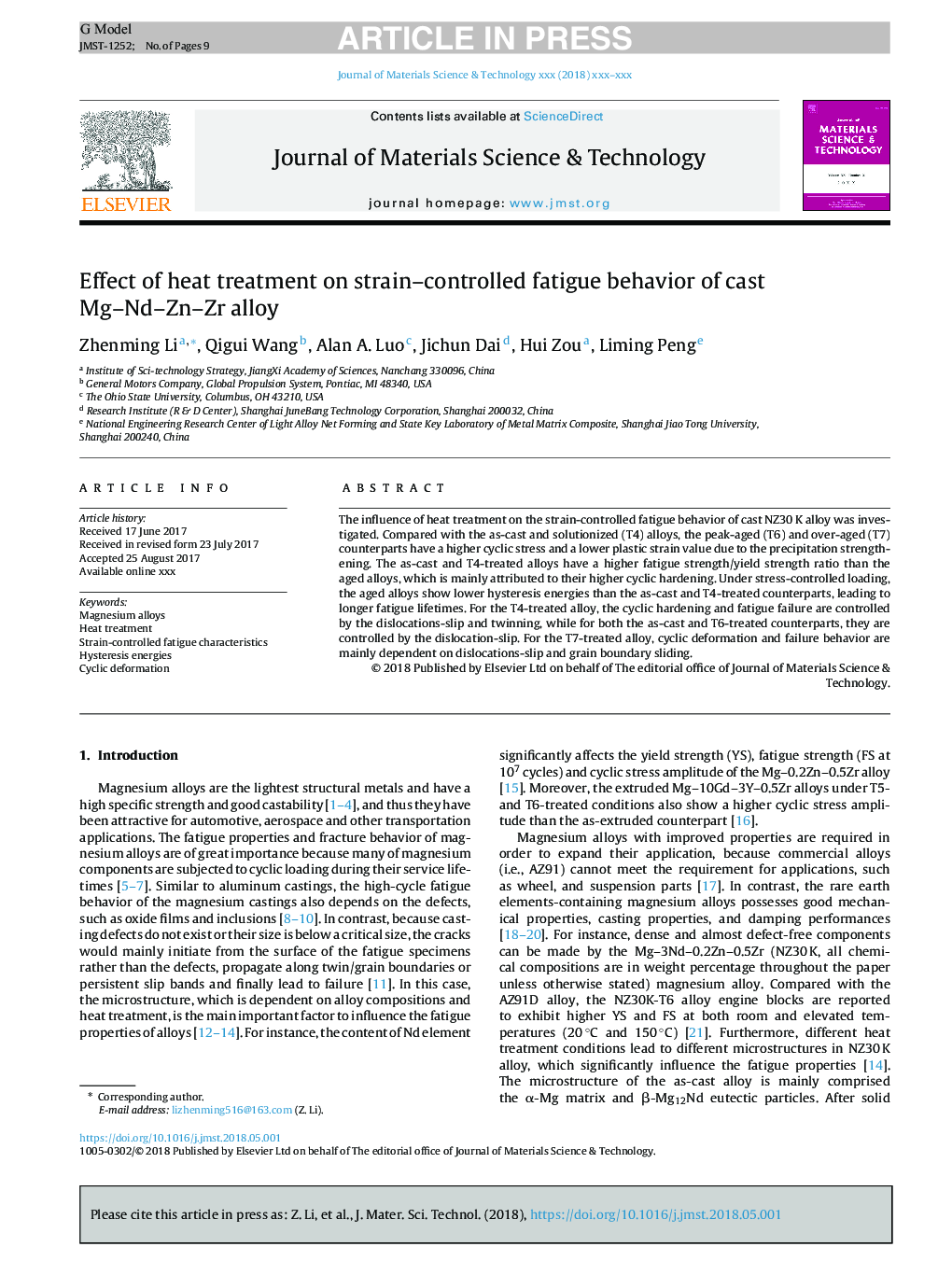| Article ID | Journal | Published Year | Pages | File Type |
|---|---|---|---|---|
| 7951839 | Journal of Materials Science & Technology | 2018 | 9 Pages |
Abstract
The influence of heat treatment on the strain-controlled fatigue behavior of cast NZ30â¯K alloy was investigated. Compared with the as-cast and solutionized (T4) alloys, the peak-aged (T6) and over-aged (T7) counterparts have a higher cyclic stress and a lower plastic strain value due to the precipitation strengthening. The as-cast and T4-treated alloys have a higher fatigue strength/yield strength ratio than the aged alloys, which is mainly attributed to their higher cyclic hardening. Under stress-controlled loading, the aged alloys show lower hysteresis energies than the as-cast and T4-treated counterparts, leading to longer fatigue lifetimes. For the T4-treated alloy, the cyclic hardening and fatigue failure are controlled by the dislocations-slip and twinning, while for both the as-cast and T6-treated counterparts, they are controlled by the dislocation-slip. For the T7-treated alloy, cyclic deformation and failure behavior are mainly dependent on dislocations-slip and grain boundary sliding.
Related Topics
Physical Sciences and Engineering
Materials Science
Materials Chemistry
Authors
Zhenming Li, Qigui Wang, Alan A. Luo, Jichun Dai, Hui Zou, Liming Peng,
